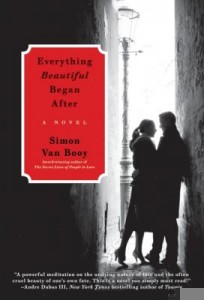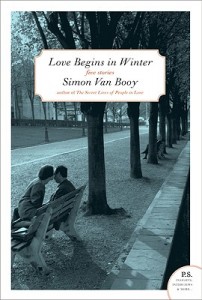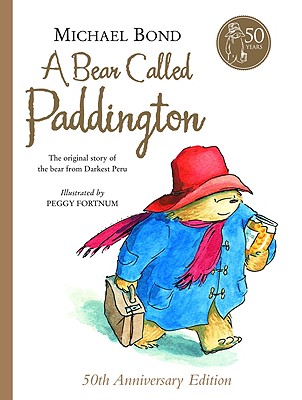
Simon Van Booy – photo credit Wang Yin
In late September 2009, Simon Van Booy boarded a plane in New York City bound for Cork, Ireland. He was one of six authors shortlisted for the Frank O’Connor International Short Story Award. The London-born author settled in for the transatlantic flight, happy for an occasion to return to his native land, and relaxed because he believed his second short story collection—the paperback original Love Begins in Winter (Harper Perennial, 2009)—didn’t stand a chance against the impressive list of international nominees.
After all, Van Booy reasoned to himself, the previous year, short story-phenom Jhumpa Lahiri had captured the O’Connor Award for her collection, Unaccustomed Earth. That, he concluded, was the kind of magnificent story collection capable of capturing the O’Connor Award, which at 35,000 euros is the world’s largest short story prize. And besides, the literary chatter was that the only other American book to make the O’Connor Award shortlist was the favored winner: Everything Ravaged, Everything Burned by Wells Tower.
And then came the awards ceremony.
Patrick Cotter, the Artistic Director of the Munster Literature Centre, the organization that oversees the O’Connor Award, took the mic: “Unusual for a work of serious literature, this book won with its consistently positive and optimistic approach to examining the travails of human experience.” The winning book was, he continued, “full of the most exquisite insights, aphoristic without ever seeming like mere conveyances for ideas.” He was, of course, describing Van Booy’s Love Begins in Winter.
Van Booy reacted to the short story prize by hunkering down to work on his first novel. In 2010, Harper Perennial brought out three nonfiction philosophy titles edited by Van Booy: Why We Need Love, Why We Fight, and Why Our Decisions Don’t Matter. Earlier this month, they released his first novel, Everything Beautiful Began After.
In the elegant, seemingly Old World prose Van Booy has become revered for, the novel traces three lives set against the Mediterranean heat of Athens: those of the drunken but brilliant American George, the searching French artist Rebecca, and the British archaeologist Henry. New York Times best-selling author and National Book Award-finalist Andre Dubus has called the novel, “A powerful meditation on the undying nature of love and the often cruel beauty of one’s own fate.” As Van Booy worked through the final stages of Everything Beautiful Began After, we conducted an email conversation about his work, the writing craft, and, of course, cufflinks.
Joshua Bodwell: How do you write–with a computer or by hand?
Simon Van Booy: I can’t write very fast, but I can type like mad, so fast in fact, that in full swing, I’m like a violent, out-of-control secretary. I write poems and short pieces with a 1956 Remington—typewriter, not electric razor.
What are your writing habits like?
I must have tea and absolute quiet. No telephones, lawnmowers, leaf-blowers. Certain pieces of music also help my mind slow to the speed at which I like to write. I also like to be fully dressed—even with sock garters, and my writing room must be extremely tidy and clean. I have to feel very much in control.
Do you use any writing tricks, such as Hemingway’s old advice that he stopped each day when he knew what was going to happen next?
That’s interesting. Did you know he also stood up when he wrote dialogue? I definitely stop for the day at a high point, because if I write until I’m exhausted, I can’t work the next day, or I don’t have enough energy for the people I love in my life.
You have spoken and written at length about your enjoyment of writing in hotels and rented cottages. How do you think this affects your writing?
I have to be alone to finish a book—or with someone who won’t demand any emotional involvement from me as I live through the final emotions of my characters. So I really need solitude to work. I have to insist on it, actually. The thought of it terrifies some people, but I look forward to it like a cream cake I can bury my face in.
Do you talk about what you’re writing while you’re working on it?
 Never. I’m very private about my work until it’s finished. It’s like a secret I have to keep. The novel I just handed in [Everything Beautiful Began After] will be out in July 2011. I took some big chances with structure, but I think writers have to take chances in order to continue developing, and to maintain the excitement of being a writer—published or not.
Never. I’m very private about my work until it’s finished. It’s like a secret I have to keep. The novel I just handed in [Everything Beautiful Began After] will be out in July 2011. I took some big chances with structure, but I think writers have to take chances in order to continue developing, and to maintain the excitement of being a writer—published or not.
Are you private about work-in-progress for superstitious reasons, or are you merely worried that someone else’s ideas will sully yours?
I’m a Pisces and we never believe in superstition. I just worry that if I tell someone about what I’m working on, they will unknowingly destroy it before it’s fully formed. It’s like asking someone to look after a spider web for you.
What do you do after you finish a first draft?
I leave it for a few weeks. I go back to it with the hope that the characters will still be breathing. Sometimes, however—when I return to a story, not only are my characters breathing, they’re drunk, or kissing or trying to escape… and then it’s a matter of control.
One of my literary heroes, Barbara Wersba, said that you never finish a book, only abandon it.
Tell me about your drafting and revision process. How many drafts of a short story do you typically work through before feeling like you are complete?
The better the short story, the fewer the drafts. I think my favorite poems were just one draft, with a few tweaks after perhaps. After too many drafts of a story I start thinking about electrotherapy treatments (for the characters, not me).
You mention your poetry. How does poetry (be it yours or other authors’) affect your prose, and vice versa?
Poetry is like a jolt of lightning to prose. Poems always inspire me to do something, even if it’s to sit in one place and watch pigeons for an hour. Being alone helps me realize the value of life and others.
As a writer with poetic instincts—for lack of a better term—are you conscious of balancing your lyricism with the narrative that propels your stories?
Yes. I have to keep the story moving, despite wanting to stop and pool in places—I have to keep everything gushing, even on—past the end of the story, so it can flood the life of the reader.
Do you think stories are discovered or created?
I think tone is discovered by being felt, and then everything is built around that.
The Secret Lives of People In Love, your first collection, fit eighteen stories into 154 pages. Your second collection, Love Begins in Winter, told just five stories in 226 pages. Tell me about the evolution in your writing between those two collections.
What an interesting question. But this difference is something that appeared organically. I also realized that it’s often necessary to tell the story by what you don’t say, rather than what you do.
 While you were working on your first novel, your collection Love Begins in Winter won the Frank O’Connor International Short Story Award. How did winning that award, and knowing that it might bring the novel more attention, affect you?
While you were working on your first novel, your collection Love Begins in Winter won the Frank O’Connor International Short Story Award. How did winning that award, and knowing that it might bring the novel more attention, affect you?
Worldly success can be quite destructive to the creative process. I have to disconnect myself from the idea of what people will think of something if I’m to write anything of sincerity and worth. On the other hand, going to Cork and winning that prize was surprising and wonderful. I’m so deeply, sincerely grateful to them for organizing it, and for Cork City Council for putting forward the prize money, which is an enormous amount of money. It was an honor to win, as the other short-listed writers were all so talented. The people of Cork really care about storytelling—it’s like food to them. That’s very exciting, especially for the children of Cork. I’ve been back twice already. I just like to wander there and meet people. It’s truly a city of light, and I think it’s certainly a place I could live.
In describing Love Begins in Winter, the jury of the O’Connor Award noted: “Unusual for a work of serious literature, this book won with its consistently positive and optimistic approach to examining the travails of human experience.” How do you arrive at such an approach?
I think just go for a walk, chat to people, learn to forgive (not only others but yourself), and you’ll see what I mean.
Are you ever conscious of your reading audience when you’re writing?
Yes. I love my readers, I adore them, and they know this. Though I must add that I always write what I personally think works—and not ever what I think someone else will like or approve of.
The author Thomas E. Kennedy once mused: “Why is it that all our petty misfortunes cast into words become a celebration?” That line made me think of your work.
He’s a good writer, isn’t he? Yes, very good, I think. For me, I think words allow us to hold hands with strangers. They remind us that one person’s experience is everyone’s. With that in mind, to love another is to love one’s self. To insult or injure another is to insult or injure one’s self. I read somewhere that we live solely to overcome the illusion of our separateness. Stories and language allow us to live without living, and to die without dying, which is why I think the modern Holy books are rooted in language and not pictures.
You were born in London and raised in Wales. Today, you live in New York City. Do you consider yourself an expatriate? Do you think that has affected your work?
Yes. I keep moving around. My parents are the same way. I feel like I’m on vacation all the time; it’s quite nice. Living abroad is almost like hiding from time, from culture, from one’s own narrative.
Your soon-to-be-released novel is entitled Everything Beautiful Began After. Tell me about that title. How did you arrive at it?
It’s about learning to love when everything around you feels ruined.
How did your process of writing short stories and writing a novel differ?
For me, a novel is like a city coming to life around you—but a world one can never really inhabit. A short story is a late-night conversation with a stranger in the park: very immediate, intimate, fleeting. Writing a novel is different. It’s really all inspired revision. Did you know that the John Harrison clocks from the early 1700s required about eight hours to disassemble and about the same time to reassemble? Sixteen hours of non-stop labor all to make one tiny adjustment. Writing a novel is worse. It has to become an obsession—and where would we be without Harrison’s clocks? “Lost at sea,” I hear you murmur.
Tell me about point of view in your writing: do the stories arrive in your mind with point of view, or do ideas arrive that you then push toward a point of view that suits the narrative?
This is something the characters control. Varying degrees of intimacy are afforded writers by the various points of view at their disposal. My characters seem to choose the one that allows them to interact with the reader in the most efficient way for the purposes of their particular story.
Ever change a story’s point of view while in the midst of writing it?
Another interesting question, Joshua. I don’t think so, though I generally write endings first.
What is your favorite point of view to write in, and why?
At the moment second person, because I’ve explored it with such interest in my novel. But they are all so wonderful and unique, aren’t they?
When discussing the origins of your stories, you once told The Herald newspaper in Scotland that they “develop out of a sense of compassion. The person who writes these stories—not me—treats everyone with importance, as if they’re the last person on Earth.” Can you expand on that?
I think we’re waking up from something. Universal compassion is a grand part of our next phase as human beings and is slowly being unveiled, like a piece of art we’ve been working on for centuries, but which we are yet to see in its entirety.
Have you read T.S. Eliot’s “Four Quartets”? One of my favorite lines is: “The only wisdom we can hope to acquire / Is the wisdom of humility: humility is endless.”
Are these long-held beliefs, or do you think being a father has opened this vein of optimism within you?
Despite efforts to the contrary, these beliefs won’t let go of me.
How do you maintain such beliefs when your life has been struck by such tragedy? [Van Booy’s wife died suddenly of an undiagnosed disorder—a suspected case of Marfan syndrome—when his daughter Madeleine was just three years old. Van Booy explored the loss in a tender essay called “Raising a Princess Single-Handedly” for the New York Times’ Modern Love column.]
I always try and remember that no matter what happens, there is a core that is myself, that is unbreakable; a place of light that cannot be diminished by how I perceive events in the world. It’s a place beyond the mind, and it’s where my stories come from. This place of light is exactly what my new novel is about.
There is a beautiful sense of morality in your writing. Is that cultivated, or just organic?
It’s something my characters seem to already possess, or find later on in their stories. I’ve often wondered if there isn’t some sort of universal morality, such as the one Schopenhauer touches on in one of his essays…
I read a line by the novelist David Mitchell the other day and, again, it made me think of your work: “The soul is a verb, not a noun.” What do you make of that?
I like that. It reminds me that whenever I run (sadly, about once every five years), I envision my own literal death. This sharpens my mind and helps me focus on what I love most about life and what I really want from life. It’s nice to do something with the body—to really use the body for what it was meant to do. Amidst the violence of exercise, it’s a relief to find a still center that is the real me.
 Who are some of your favorite fictional characters in literature?
Who are some of your favorite fictional characters in literature?
Sir Gawain, Margaret Schlegel, Jay Gatsby, Prometheus, Fagin, Silas Marner, Anthony Blanche, Moses, Buddha, Paddington Bear, Jean Valjean, Estragon…dear me, I have a list and it’s long isn’t it?
Put it this way: if any of these characters were in hospital, I’d visit them with grapes and magazines, help them make phone calls, check e-mail, et cetera.
Okay, you’re known as something of a bon vivant, so let me get your thoughts a couple of not-so-literary implements: Cuff links? Pocket square?
Cuff links, yes. Pocket square—only after 6:00PM.
Further Links and Resources
- Find upcoming speaking engagements on Simon Van Booy’s website.
- Check out Van Booy’s custom-designed downhill skis at Partners & Spade
- Buy Everything Beautiful Began After at an independent bookstore near you!





